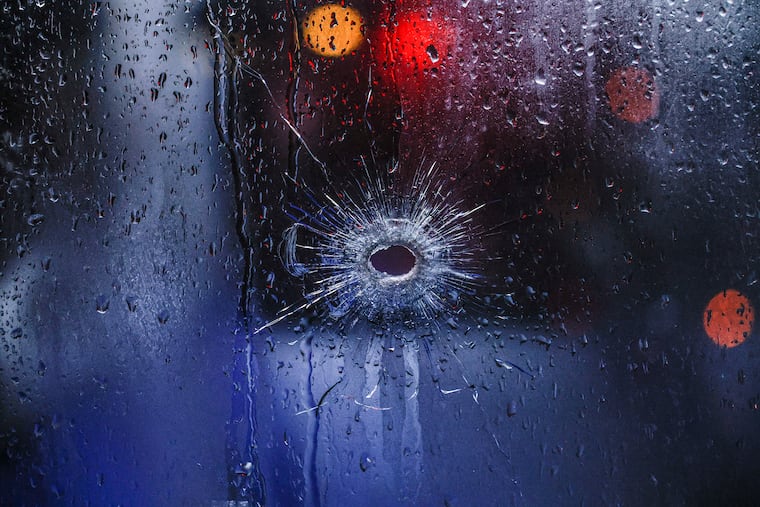A string of shootings, a familiar sense of dread, and the racist policies that fuel gun violence in Philadelphia
When young white men are shot, the perpetrators are three times as likely to be convicted as when the victims are Black. That’s not an accident.

The world has heard about the shootings that killed one student and injured 10 others at bus stops near Imhotep and Northeast high schools. When you live in other places, you can view that gun violence and thank God it’s not your kids.
But it hits a little different for those of us who live in Philly because it’s one thing to see the carnage on the news. It’s another thing to hear the shots nearby. Or to feel the vibration of police helicopters flying overhead. Or to see the red and blue lights of a patrol car reflecting off your windows as the cruisers speed past your home.
When you live in Philly, and you’ve been here for a minute, each shooting brings a sense of dread. While others can watch the drama play out on the news, we have to live with real-life horrors. I don’t know that we’ve recognized the stress it brings. In fact, the trauma has become routine.
The bullets fly and we’re scrolling through social media, trying to see how we’re connected to the victims. The sirens wail and we’re calling up our friends, trying to learn whose child we’re burying next.
When a shooting happens and the news spreads through our churches and mosques, through our fraternities and sororities, through our households and workplaces, we experience a mix of emotions we try hard to ignore. For me, the toxic combination of anger and grief is even worse than it might be for many others because I am not only aware of the danger posed by the shootings. I also know what the statistics say about crimes being solved when the victims are young, Black, and male.
Between 2015 and 2020, roughly 2,700 young Black men in Philadelphia were wounded in shootings, according to The Inquirer, but the suspected assailants were convicted in only 6% of those cases.
When young white men were shot, the perpetrators were three times as likely to be convicted. That’s not an accident. We live in a society in which white life is more valued than Black life — a reality that underpins the racist policies that have created an environment where gunfire happens far too frequently in Philadelphia’s African American communities.
In a setting where school buildings are 100 years old and contain asbestos, where teachers are leaving the profession because they’re overworked and underpaid, and where librarians are scarce despite multibillion-dollar school district budgets, our city’s education system is crippled. That leads to high school dropouts, and dropouts are at an increased risk of engaging in crime.
When the federal government and mortgage lenders draw red lines around Black communities and purposely disinvest, businesses disappear and jobs fade away. That leads to Black unemployment rates that are twice as high as white unemployment rates. And when people don’t have jobs, that leads to crime, which leads to incarceration.
We live in a society in which white life is more valued than Black life.
In a criminal justice system that routinely produces worse outcomes for Black people than their counterparts of other backgrounds, jail becomes a revolving door, and families are trapped in a generational cycle of incarceration because children of jailed parents are statistically more likely to face prison, as well.
Toss in some drugs and some guns, some rage and some resentment, then set it all to a beat and call it drill music, and gunshots become the rhythm of the streets.
As the parent of a 19-year-old son and a 22-year-old daughter, I have convinced myself not to be consumed by the anxiety that gun violence produces. After all, my wife and I have given our children the foundation they need to succeed, and they are both currently in college. But in the vernacular of the ‘hood, bullets don’t have no names, and so I pray.
If only that were enough.
In a city where too many parents are sleepless, and families are living with trauma, I believe it’s up to all of us to challenge the realities that lead to gun violence. It’s also up to all of us to make it stop.